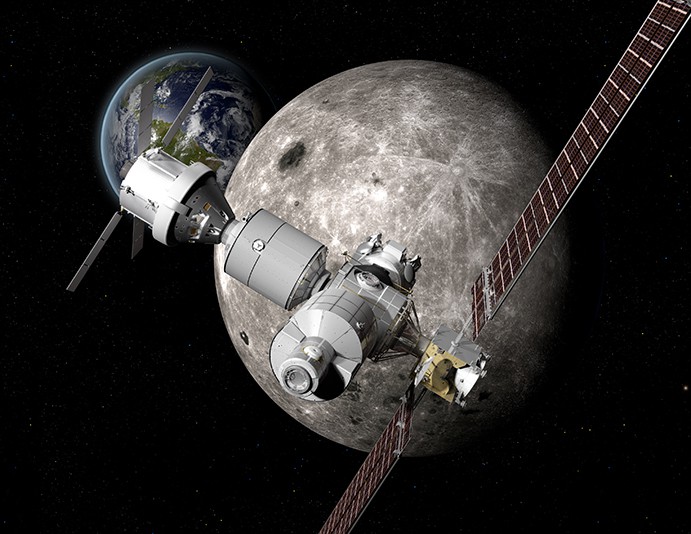The NASA led project, which as well as ESA involves the Russian, Canadian, and Japanese space agencies, plans to use the base as a staging post for missions to Mars and beyond. NASA plans to launch the first module - the central power propulsion element (PPE) – into lunar orbit in the early 2020's.

As previously reported by The Engineer a number of private companies including Boeing, Lockheed Martin, Bigelow Aerospace, Sierra Nevada Corporation, Orbital ATK, are developing concepts for the space-station
Airbus has been asked to develop concepts for the space station’s habitation and research module as well as for an infrastructure element for refuelling, docking and telecommunications, which will also serve as an airlock for scientific equipment.
Oliver Juckenhöfel, head of On-Orbit Services and Exploration at Airbus said that its initial designs, which will be presented at the International Astronautical Congress (IAC) in Bremen in October 2018, will draw heavily on the lessons leaned through flagship projects such as the Columbus space laboratory, the ATV space transporter and the European service module for Orion.
“When developing the new lunar platforms, robotic and human space exploration go hand in hand,” he said. “Europe has a fantastic track record in both, and these two studies will help to ensure a strong European presence in future space exploration.”
David Parker, director of Human and Robotic Exploration at ESA, welcomed that news as a sign that the European space sector will be at the heart of one of humanity’s most exciting space projects.
"With these studies and other preparations, ESA aims to stay at the centre of human space exploration. The Gateway will become humanity's most remote research outpost and we hope Europe will benefit from the world of innovation, discovery and excitement that lies ahead," he said.




Poll: Should the UK’s railways be renationalised?
All public service companies should be nationalised for many different reasons, particularly railways, not the least because the tax payer has already...